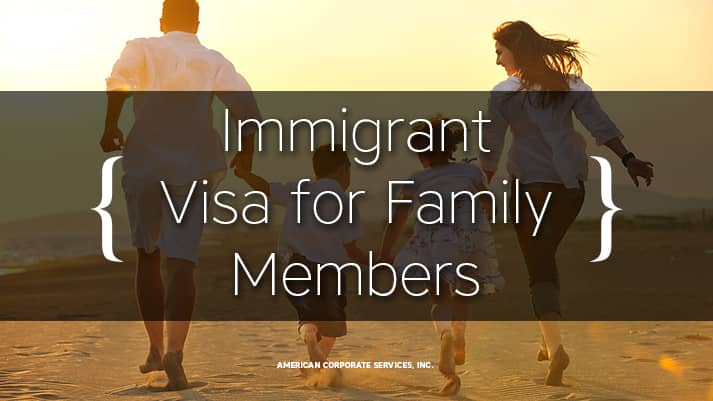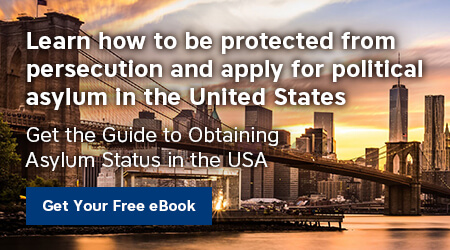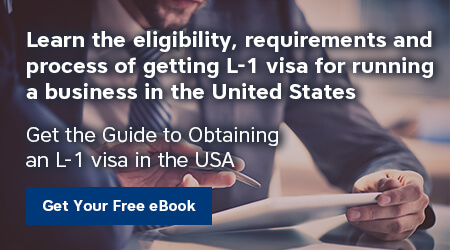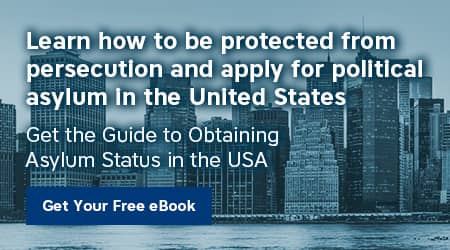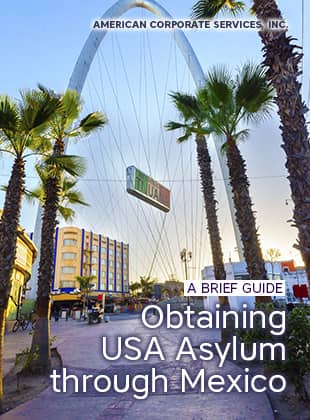Citizens of foreign countries must obtain an immigrant visa before they are allowed to become permanent residents in the United States. One way to obtain an immigration visa is to ask a family member already residing in the U.S. who can sponsor you. While some visas are issued based on education, employment, or investment opportunities, the Alien Relative Visa is primarily based upon familial relationships.
Who is eligible to apply?
U.S. citizens may apply for an immigrant visa petition on behalf of a spouse, child, parent, or sibling.
U.S. Green Card holders may file an immigration visa petition on behalf of a spouse and unmarried children under the age of 21.
If you believe you have one family member that can file the petition for you, contact your attorney to start the process.
There are four basic steps in the immigrant visa process.
1. File the I-130 petition.
To begin this immigration process, contact an Immigration Attorney qualified to assist your sponsoring family member with filing Form I-130 Petition for Alien Relative with the U.S. Citizenship and Immigration Services (USCIS).
The filing fee for this Petition is $535.
Evidence of the family relationship will be required along with the completed Form I-130. Spouses must also file a completed Form I-130A. Consult with yimmigration attorney to ensure that you have obtained all required documents and that they have been completely and accurately prepared for submission. You may be required to complete a Form I-864 Affidavit of Support. (See Step #3.)
Do not attempt to file with the assistance of a qualified attorney. Incomplete submissions will cause delays in processing.
The USCIS will mail a receipt for your petition. The receipt is not an approval for your relative to immigrate. Acceptance means that you have a place in line to be processed for approval.
Note: If you are already a U.S. citizen, visas will be immediately available to your spouse and unmarried children under 21 years of age.
2. Be patient during the consular processing.
Petitions for relatives living outside the U.S. are forwarded to Department of State's National Visa Center (NVC) where the documents will be held until a visa becomes available. When that time comes, the NVC will notify you and your relative with specific instructions on how to apply for their visa at a U.S. consulate.
Processing speed is dependent upon the number of visas available based on demand. There are times when the process moves along rapidly, and times when the process is delayed for reasons that are beyond your control. Be patient.
(To begin the NVC process, your relative needs to choose an Agent. The Agent will receive all the communication from NVC about the petition case. The Agent will help them complete and submit a Form DS-261 Choice of Address and Agent to the NVC. Your Agent understands this part of the process and will ensure that your paperwork is in order prior to submission. Expect it to take about three weeks to process your DS-261 form.
You or your relative must pay the Immigrant Visa Application Processing Fee processing fee of $165 through the USCIS online system. This fee should be paid after your relative has been approved for a visa at the U.S. consulate to ensure that they will receive their Green Card at their U.S. port of entry. Allow up to a week for the NVC to process your payments.
3. Submit forms and documents.
Your relative may complete the Form DS-260 Immigrant Visa and Alien Registration online. It includes your personal information, your family’s information, and the petitioner’s information, security, and background information. After they have submitted this form, they should print the confirmation page and bring it to their interview.
You should also collect financial and supporting documents and then submit it to the NVC. Your sponsoring family member must submit an Affidavit of Support form and include all the required evidence of income. There are several Affidavit of Support forms, and different form applies to different people. Discuss with your attorney about which form applies to your own situation.
You should also prepare the civil documents that apply to you. After you gathered all the documents, you should send the photocopy of all required civil documents to the NVC. Bring the original documents and a photocopy to your visa interview. Make sure you gathered all documents because failure to obtain all required documents will delay your case.
4. Attend the interview.
After the NVC has reviewed your case, they will notify you and your relative about the interview. You may wait for several months for an available date.
At the end of your interview, the officer will inform your relative whether their visa application is approved or denied. If the application is approved, congratulations! If your application is denied, you may need to submit additional documents or require additional administrative processing. Contact your attorney if you need help with the denial.
Disclaimer: The article contains general information and does not include legal advice on a particular case.
Xili Zou, Paralegal, ACS Inc.

